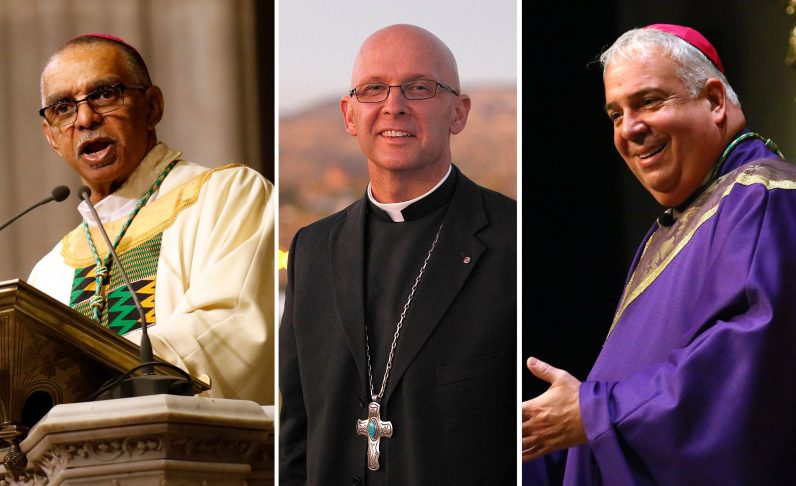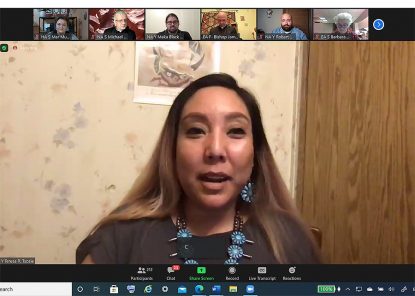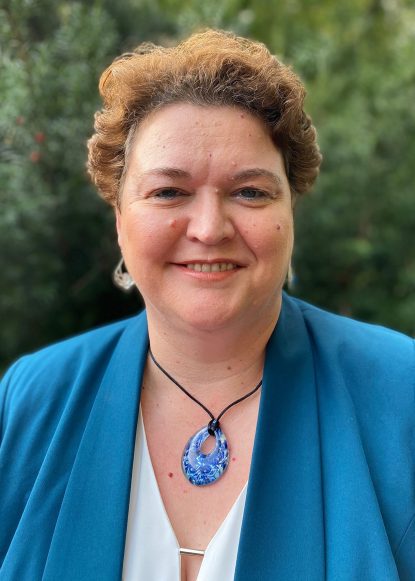
Auxiliary Bishop Fernand J. Cheri of New Orleans, Bishop James S. Wall of Gallup, N.M., and Philadelphia Archbishop Nelson J. Pérez are seen in this composite photo. (CNS composite/photos by Gregory A. Shemitz; Bob Roller; Sarah Webb, CatholicPhilly.com)
From uneven responses to the COVID-19 crisis to the raw racial tensions exposed by the death of George Floyd in 2020, Americans over the past year have become more conscious of the diversity of the country’s population and the struggles that different cultures experience on a day-to-day basis.
That focus has also become a priority in the Catholic Church nationwide, and a program initiated by the U.S. Conference of Catholic Bishops’ Committee on Cultural Diversity in the Church is focused on a way to promote the voices and understand the needs of the diverse group of young adults who are the future of the Church in the United States.
Called Journeying Together, the program focuses on bringing together young adults from a wide variety of cultural backgrounds to discuss their experiences in the U.S. Church and begin a strategy of how to make their voices heard as the church moves forward.
[hotblock]
Journeying Together, organizers say, is the USCCB’s response to the 2018 Synod of Bishops on young people and Pope Francis’ 2019 apostolic exhortation “Christus Vivit” (“Christ Lives”), his reflections on the synod. The document focused on the importance of listening to and engaging young people worldwide.
The USCCB program’s core purpose is to help find ways for the voices of young adult Catholics from all cultural backgrounds to be heard.
“We started this because of the pope’s message about bringing the Gospel to all young people,” said Mar Muñoz-Visoso, executive director of the USCCB’s Secretariat of Cultural Diversity in the Church.
“There has been an awareness for a while that youth and young adult ministry is not always serving or reaching all young people in all cultural groups,” she told Catholic News Service. “We know youth of all cultural groups have been feeling that their dioceses or parishes are not reaching out to them, and as a result the church is increasingly not a part of their lives.”

Teresa Rojo Tsosie, director of religious education at St. Jude Parish in Tuba City, Ariz., participates in a Journeying Together intercultural dialogue led by the Asian and Pacific Island cultural group in March 2021. Over 2,300 young adults and ministry leaders have participated at different stages of the Journeying Together program since it was kicked off in July 2020 by the U.S. Conference of Catholic Bishops’ Committee on Cultural Diversity in the Church. (CNS photo/courtesy Mar Muñoz-Visoso)
The initiative launched July 25, 2020, with what was originally supposed to be an in-person conference. The COVID-19 pandemic prevented that, so organizers moved quickly to make sure the important conversations could still take place.
Engagement became a priority especially with the heated discussions about racism and diversity that were going on around the country amid nationwide protests spurred by Floyd’s death and other incidents.
“The Committee on Cultural Diversity said we don’t want to delay having this conversation — we need to do it now which everything else that is going on — the pandemic, the reckoning with racial justice — so we switched to a virtual mode,” Muñoz-Visoso said.
“This gathering we were going to do in just one weekend expanded to a series of online meetings that gave each community the chance to talk amongst themselves and to present themselves to the others, to present their joys, sorrows, needs and hopes,” she said.
In a way, COVID-19 restrictions turned out to be a blessing for the Journeying Together process because what started out as a weekend gathering turned into a yearlong conversation fueled by the Zoom meeting platform that became so vital during the pandemic.
[tower]
Participants met first in monthly intracultural groups, which gave the young adults from the same communities a chance to share their experiences, frustrations and challenges of combining their cultural experiences with their faith. These were followed by monthly intercultural exchanges which gave members of all of the communities a chance to learn about each other’s cultures and faith experiences.
The meetings brought together young adults and ministry leaders from every large cultural family in the country: African-Americans, Asian and Pacific Islanders, European Americans, Hispanic/Latino, Native Americans, and a group for migrants, refugees and communities on the move, including farm workers, those who work with carnivals and circuses, maritime workers and Irish Travelers.
By including European Americans and migrant communities, Journeying Together went one step further than many recent diversity programs because it gave these two groups a chance to discuss their unique cultures and reflect on what they mean for the fabric of the church.
Each of the online meetings was led by a panel who presented core issues, and then meeting-goers broke up into smaller groups where participants joining in from around the country could discuss their experiences in a smaller, more comfortable setting.
Young adults jumped at the chance to talk with both members of their own cultural communities and others — each Zoom session drew over 200 participants.
The young adults also have been heard by church leadership. Over 35 bishops from around the country joined in on the meetings, offering their perspectives on issues of diversity and inclusion and listening to firsthand accounts of young adults’ experiences as Catholics in the United States.
Participating bishops included Archbishop Nelson J. Pérez of Philadelphia, chairman of the Committee on Cultural Diversity in the Church, who attended more than 10 of the dialogues.
Others who participated included Auxiliary Bishop Fernand J. Cheri of New Orleans, who is a member of the USCCB’s Subcommittee on Pastoral Care of Migrants, Refugees and Travelers, and Bishop James S. Wall of Gallup, New Mexico, chairman of the USCCB’s Subcommittee on Native American Affairs.

Mar Muñoz-Visoso, executive director of the U.S. bishops’ Secretariat of Cultural Diversity in the Church, is seen in this Sept. 11, 2020, photo. (CNS photo/courtesy Mar Munoz-Visoso)
“Most of the young adults who participated don’t have much access to a bishop to sit down and talk with them, and for many it was an uplifting experience to have a bishop sitting around this virtual table with them to listen to their stories,” Muñoz-Visoso told CNS.
The monthly online meetings concluded in late June, and for the next year participants from around the country will meet further to process what was learned.
Participants will finally get to meet other at a live in-person event scheduled for June 23-26, 2022, in Chicago. Central to that event will be planning sessions on how to take what has been learned to the next level — namely, working on concrete ways for the church to better engage young people from all cultures around the country.
The results of the Journeying Together process will then be published and offered to dioceses, schools, Catholic organizations and apostolic movements nationwide so they can continue the work at the grassroots level.
Many of the participants said that will be the most important fruit of all the months of thought, prayer and discussion.
“Creating the space for this conversation to happen was such a key step, but my prayer is that it will not remain as just another process, conversation, or another document that is written,” said Cecilia Marie Flores, a Filipino American community organizer with Sacramento ACT in the Diocese of Sacramento, California.
“I pray that what we have learned about and from one another in this process,” she said, “would ignite our hearts with a desire to be a church that truly celebrates and embraces diversity as a gift.”
PREVIOUS: Catholic school’s lawsuit against mask mandate goes to federal court
NEXT: Catholics weigh in on abuse scandal 3 years after McCarrick and Pa. report



Share this story